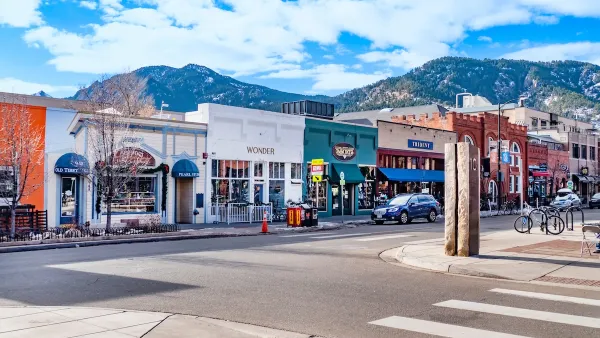Fewer cars on the road, less driving, why not fewer parking spots? Cities like D.C., L.A., Denver, Philadelphia are responding by reducing or eliminating parking minimums, while Portland, which had already eliminated them, are bringing them back.

Calling it "a profound shift" across the U.S., Kris Hudson writes primarily of the proposed zoning change in the District of Columbia [also described here] that would waive "requirements that new buildings near its 40 rail-transit stops include parking spaces, joining a growing list of cities that are responding to shrinking car ownership by residents of dense neighborhoods."
Portland was way ahead of the pack, perhaps too ahead. It waived "some minimum-parking requirements in the 1980s," but after a study "last year found that 70% of residents in eight big apartment complexes near various Portland rail stops owned at least one car, (it) reintroduced minimum parking requirements for new residential buildings of 30 units or more near rail stops".
The parking reform effort in D.C. is made possible by the success of the 37-year-old heavy rail system, Metro, that has enabled 39% of the city's residents in 2011 to be carless. That compares with 25% in 1960. Only New York City has a higher percentage - 56%.
Harriet Tregoning, director of the city's Office of Planning, said that scaling back requirements near Metro stops is overdue.
While Hudson writes, "Nationally, car ownership has risen in recent decades. According to census data, 9.3% of U.S. households had no car in 2011, down from 10.3% in 2000 and 13% in 1990", it was reported here on June 20 that "total auto ownership peaked in 2008 according to a new report by Michael Sivak of the University of Michigan's Transportation Research Institute".
For one suggestion for how to appease opponents of parking reform, see Matthew Yglesias's recent post on the topic for Slate.
Note from Wall Street Journal: "Subscriber-only content will be available to non-subscribers for up to seven days after (July 09)".
FULL STORY: Cities Cut Parking Mandates

Planetizen Federal Action Tracker
A weekly monitor of how Trump’s orders and actions are impacting planners and planning in America.

Maui's Vacation Rental Debate Turns Ugly
Verbal attacks, misinformation campaigns and fistfights plague a high-stakes debate to convert thousands of vacation rentals into long-term housing.

San Francisco Suspends Traffic Calming Amidst Record Deaths
Citing “a challenging fiscal landscape,” the city will cease the program on the heels of 42 traffic deaths, including 24 pedestrians.

Defunct Pittsburgh Power Plant to Become Residential Tower
A decommissioned steam heat plant will be redeveloped into almost 100 affordable housing units.

Trump Prompts Restructuring of Transportation Research Board in “Unprecedented Overreach”
The TRB has eliminated more than half of its committees including those focused on climate, equity, and cities.

Amtrak Rolls Out New Orleans to Alabama “Mardi Gras” Train
The new service will operate morning and evening departures between Mobile and New Orleans.
Urban Design for Planners 1: Software Tools
This six-course series explores essential urban design concepts using open source software and equips planners with the tools they need to participate fully in the urban design process.
Planning for Universal Design
Learn the tools for implementing Universal Design in planning regulations.
Heyer Gruel & Associates PA
JM Goldson LLC
Custer County Colorado
City of Camden Redevelopment Agency
City of Astoria
Transportation Research & Education Center (TREC) at Portland State University
Jefferson Parish Government
Camden Redevelopment Agency
City of Claremont





























